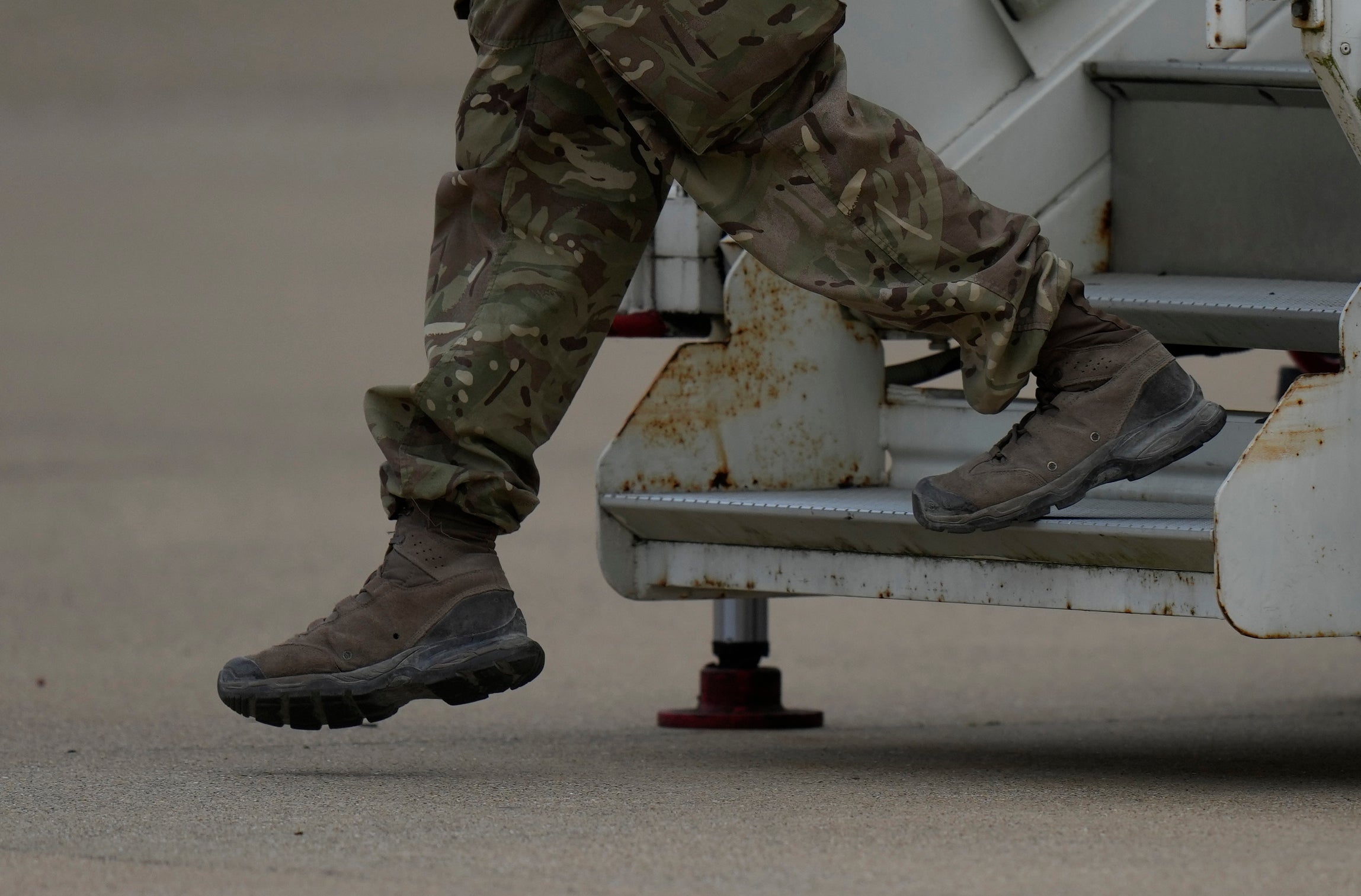UK starts to bring troops home as Kabul airlift winds down
Britain has started bringing troops home from Afghanistan as the country’s evacuation operation at Kabul airport winds down

Your support helps us to tell the story
From reproductive rights to climate change to Big Tech, The Independent is on the ground when the story is developing. Whether it's investigating the financials of Elon Musk's pro-Trump PAC or producing our latest documentary, 'The A Word', which shines a light on the American women fighting for reproductive rights, we know how important it is to parse out the facts from the messaging.
At such a critical moment in US history, we need reporters on the ground. Your donation allows us to keep sending journalists to speak to both sides of the story.
The Independent is trusted by Americans across the entire political spectrum. And unlike many other quality news outlets, we choose not to lock Americans out of our reporting and analysis with paywalls. We believe quality journalism should be available to everyone, paid for by those who can afford it.
Your support makes all the difference.Britain began bringing troops home from Afghanistan as the country’s evacuation operation at Kabul airport wound down Saturday, and the U.K.’s top military officer acknowledged, “We haven’t been able to bring everybody out.”
A Royal Air Force plane carrying U.K. diplomatic staff and soldiers landed at the RAF Brize Norton airbase northwest of London early Saturday morning. The troops from the 16 Air Assault Brigade were part of a contingent of 1,000 British soldiers based in Kabul to help run the airlift.
Flights bringing U.K. citizens and Afghan civilians from the Afghan capital have largely ended, though the head of the British armed forces, Gen. Nick Carter said there would be a “very few” more on Saturday.
Britain says it has evacuated more than 14,500 people from Kabul in the past two weeks but that as many as 1,000 Afghans entitled to come to the U.K. have been left behind.
“We haven’t been able to bring everybody out, and that has been heartbreaking, and there have been some very challenging judgments that have had to be made on the ground,” Carter told the BBC.
Foreign nationals from around the world and citizens of Afghanistan who worked with them have sought to leave the country since the Taliban’s swift takeover this month in the wake of the departure of most U.S. forces. More than 100,000 have been evacuated through Kabul airport, according to American officials.
The desperate, chaotic exodus turned deadly on Thursday, when a suicide bomber struck crowds gathered near the airport. The attack killed 169 Afghans, according to a preliminary count, and 13 American troops. Two British citizens and the child of another Briton also were among the people killed.
In London, Afghans came to the Afghanistan and Central Asian Association advice center, desperate for news of friends and relatives.
Saraj Deen Safi said he had been unable to make contact with relatives who were near Kabul airport since Thursday’s bomb attack. He said he hoped they would be able to reach a safe European country, but he felt “despaired” at the lack of news.
While the U.K. has evacuated thousands of former interpreters and others who worked with British forces, the advice program coordinator for the London association, Shabnam Nasimi, said she was “devastated” for many others.
“There are many others who indirectly supported our work there to bring about democracy and free speech and a much better society for Afghanistan,” Nasimi said. “And the fact we haven’t recognized that and now abandoned those people. And these include journalists and judges, for instance, who are directly going to be targeted by the Taliban."
“The future of these individuals is very bleak,” she said.
British Prime Minister Boris Johnson promised Friday to “shift heaven and earth” to get more people from Afghanistan to Britain by other means, though no concrete details have been offered.
U.K. officials hope some people may be able to leave Afghanistan overland for neighboring countries, where their claims to come to the U.K. could be processed. That will depend on diplomatic coordination and cooperation — not least from the Taliban.
___
Associated Press video journalist Jo Kearney contributed to this story.
___
Follow AP's coverage of Afghanistan at https://apnews.com/hub/afghanistan